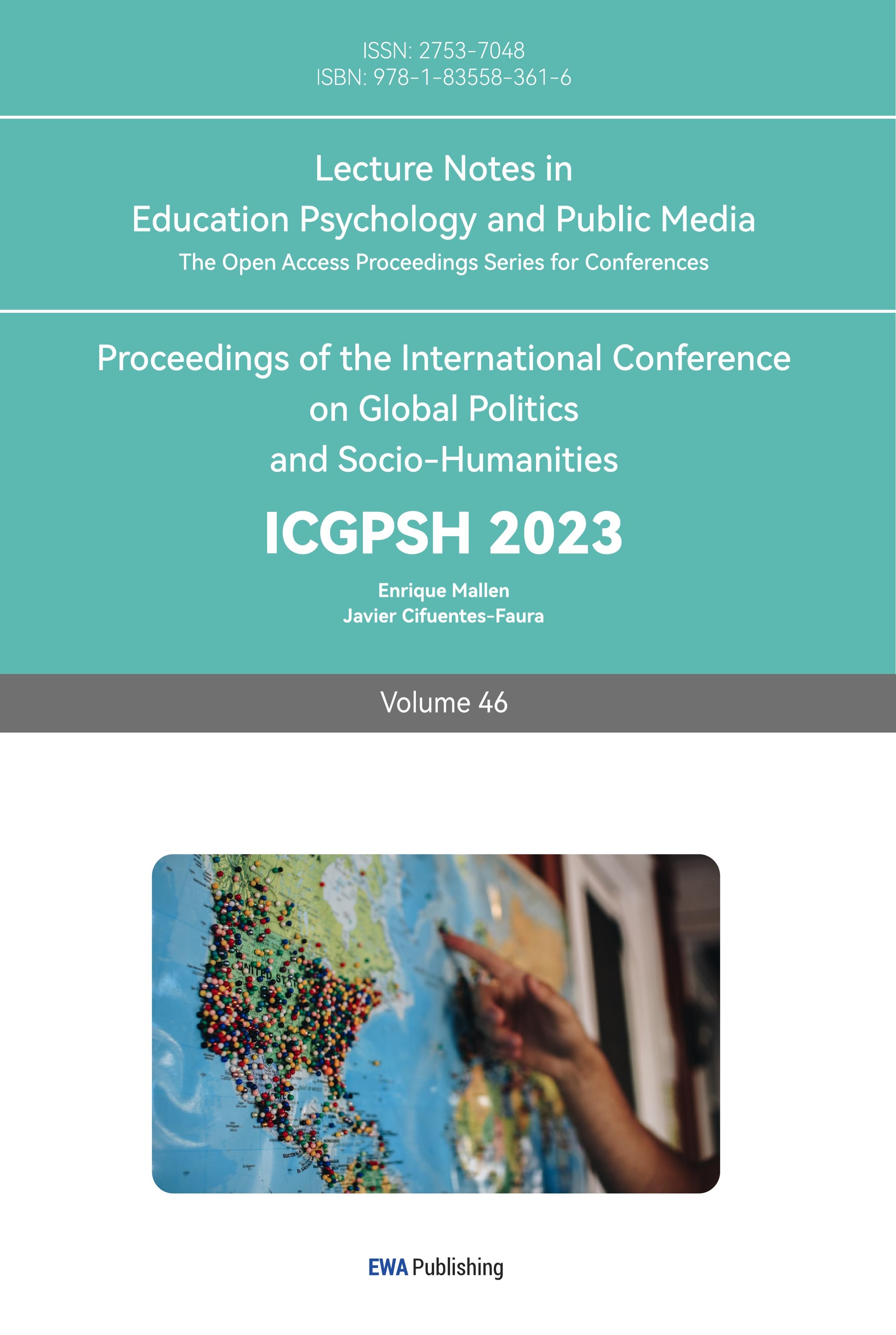References
[1]. Wang, J., & Zheng, X. (2010, May 1). South Africa - There Is a Long Way to Close the Gap between Rich and Poor, pp. 1–2.
[2]. Dosunmu, A. G., & Mpho, D. (2019, November). Access to higher education and career advancement for women in the ... Access to higher education and career advancement for women in the South African work environment. https://www.researchgate.net/publication/337556626_Access_to_higher_education_and_career_advancement_for_women_in_the_South_African_work_environment
[3]. Mosomi, J. W. (2020, April 16). The labor market in South Africa, 2000–2017. IZA World of Labor. https://wol.iza.org/articles/the-labor-market-in-south-africa/long
[4]. Spaull, N. (2012, November 8). Poverty & privilege: Primary school inequality in South Africa. International Journal of Educational Development. https://www.sciencedirect.com/science/article/abs/pii/S0738059312001381?via%3Dihub
[5]. Booysen, L., & Nkomo, S. (2010, June). Gender role stereotypes and requisite management characteristics. Gender role stereotypes and requisite management characteristics: The case of South Africa. https://www.researchgate.net/profile/Lize-Booysen-2/publication/235288108_Gender_role_stereotypes_and_requisite_management_characteristics_The_case_of_South_Africa/links/55084e040cf27e990e0a0ec6/Gender-role-stereotypes-and-requisite-management-characteristics-The-case-of-South-Africa.pdf
[6]. International Labour Organization. (2019). Wages in Africa Recent trends in average wages, gender pay gaps and wage disparities. Wages in Africa - International Labour Organization. https://www.ilo.org/wcmsp5/groups/public/---africa/---ro-abidjan/---sro-cairo/documents/publication/wcms_728363.pdf
Cite this article
Xu,S.;Liu,Y. (2024). South Africa: Wealth Gap, Employment Imbalance, and Education Inequality in South Africa. Lecture Notes in Education Psychology and Public Media,46,175-180.
Data availability
The datasets used and/or analyzed during the current study will be available from the authors upon reasonable request.
Disclaimer/Publisher's Note
The statements, opinions and data contained in all publications are solely those of the individual author(s) and contributor(s) and not of EWA Publishing and/or the editor(s). EWA Publishing and/or the editor(s) disclaim responsibility for any injury to people or property resulting from any ideas, methods, instructions or products referred to in the content.
About volume
Volume title: Proceedings of the International Conference on Global Politics and Socio-Humanities
© 2024 by the author(s). Licensee EWA Publishing, Oxford, UK. This article is an open access article distributed under the terms and
conditions of the Creative Commons Attribution (CC BY) license. Authors who
publish this series agree to the following terms:
1. Authors retain copyright and grant the series right of first publication with the work simultaneously licensed under a Creative Commons
Attribution License that allows others to share the work with an acknowledgment of the work's authorship and initial publication in this
series.
2. Authors are able to enter into separate, additional contractual arrangements for the non-exclusive distribution of the series's published
version of the work (e.g., post it to an institutional repository or publish it in a book), with an acknowledgment of its initial
publication in this series.
3. Authors are permitted and encouraged to post their work online (e.g., in institutional repositories or on their website) prior to and
during the submission process, as it can lead to productive exchanges, as well as earlier and greater citation of published work (See
Open access policy for details).
References
[1]. Wang, J., & Zheng, X. (2010, May 1). South Africa - There Is a Long Way to Close the Gap between Rich and Poor, pp. 1–2.
[2]. Dosunmu, A. G., & Mpho, D. (2019, November). Access to higher education and career advancement for women in the ... Access to higher education and career advancement for women in the South African work environment. https://www.researchgate.net/publication/337556626_Access_to_higher_education_and_career_advancement_for_women_in_the_South_African_work_environment
[3]. Mosomi, J. W. (2020, April 16). The labor market in South Africa, 2000–2017. IZA World of Labor. https://wol.iza.org/articles/the-labor-market-in-south-africa/long
[4]. Spaull, N. (2012, November 8). Poverty & privilege: Primary school inequality in South Africa. International Journal of Educational Development. https://www.sciencedirect.com/science/article/abs/pii/S0738059312001381?via%3Dihub
[5]. Booysen, L., & Nkomo, S. (2010, June). Gender role stereotypes and requisite management characteristics. Gender role stereotypes and requisite management characteristics: The case of South Africa. https://www.researchgate.net/profile/Lize-Booysen-2/publication/235288108_Gender_role_stereotypes_and_requisite_management_characteristics_The_case_of_South_Africa/links/55084e040cf27e990e0a0ec6/Gender-role-stereotypes-and-requisite-management-characteristics-The-case-of-South-Africa.pdf
[6]. International Labour Organization. (2019). Wages in Africa Recent trends in average wages, gender pay gaps and wage disparities. Wages in Africa - International Labour Organization. https://www.ilo.org/wcmsp5/groups/public/---africa/---ro-abidjan/---sro-cairo/documents/publication/wcms_728363.pdf









